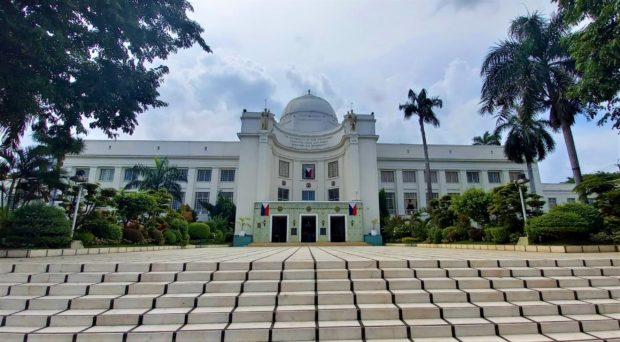Cebu lawyers sue IATF over health protocols

LOCAL GOV’T POWER The Cebu government is invoking a local ordinance in requiring the immediate testing of all arriving passengers from overseas trips and their shorter quarantine period in the province. —DALE G. ISRAEL
CEBU CITY, Cebu, Philippines — Two lawyers here on Monday filed a petition in court to declare the national pandemic task force’s protocols for returning overseas Filipinos as “ineffective and inapplicable” in Cebu province, where a different set of testing and quarantine guidelines is observed.
Lawyers Clarence Paul Oaminal and Valentino Bacalso Jr. also asked the Regional Trial Court in Cebu City to issue a 72-hour temporary restraining order (TRO) and to immediately order the Inter-Agency Task Force for the Management of Emerging Infectious Diseases (IATF) to “cease and desist” from implementing its Resolution No. 114 in Cebu, requiring arriving Filipinos from abroad, including overseas Filipino workers (OFWs), to undergo quarantine for 14 days upon their arrival.
Duque is respondent
Under IATF rules, the first 10 days will be spent in an accredited quarantine while a COVID-19 swab test will be conducted on the seventh day from arrival.
Cebu, on the other hand, is implementing a swab upon arrival policy and a shorter quarantine period.
While the case is being heard, the lawyers requested the court to issue a 20-day TRO.
Article continues after this advertisementNamed respondent in the case for “declaratory relief” was the IATF led by its chair, Health Secretary Francisco Duque III.
Article continues after this advertisement“The IATF Resolution No. 114, including its amendments correlative resolutions, cannot supplant Cebu Provincial Ordinance No. 2021-04 and its amendatory ordinance numbered 2021-05 while they are still valid and effective within the territorial jurisdiction of Cebu, for only the courts can declare these ordinances invalid or the Sangguniang Panlalawigan abrogates or repeals it,” Oaminal and Bacalso said.
“In the hierarchy of things, the Constitution reigns supreme, followed by the laws enacted by Congress then the local ordinances. Rules and regulations issued by the national agencies, whether individually or collegially, do not have the permeating effects as greater than that of a local law or ordinance. At most, these administrative acts are effective only within the sphere of the national agency or agencies under it or under them for implementation,” they added.
Gov’s position
The case shares the position of Cebu Gov. Gwendolyn Garcia that the IATF needs concurrence from the local government if it continues to impose health policies on a locality beyond six months during the pandemic.
Section No. 105 of Republic Act No. 7160, or the Local Government Code, states that “in cases of epidemics, pestilence, and other widespread public health dangers, the Secretary of Health, may, upon the direction of the President and in consultation with the local government unit concerned, temporarily assume direct supervision and control over health operations in any local government unit for the duration of the emergency, but in no case exceeding a cumulative period of six months.”
Oaminal and Bacalso were assisted by a consultant of Garcia in preparing the case.
Garcia’s executive order and an ordinance of the provincial board require OFWs and residents returning from abroad to undergo a COVID-19 test upon arrival at Mactan-Cebu International Airport (MCIA) and to go on hotel quarantine for a period of only two to three days.
The provincial board later amended its ordinance and ordered those from abroad to undergo another test on the seventh day after their arrival and while they are on “facility or home” quarantine.
The conflicting policies resulted in the diversion of international flights from MCIA to Ninoy Aquino International Airport from May 29 to June 12.
The IATF will visit Cebu on June 28 to evaluate the province’s policy for OFWs and residents returning from overseas trips.